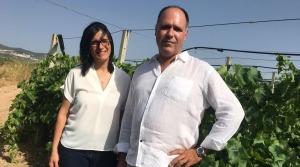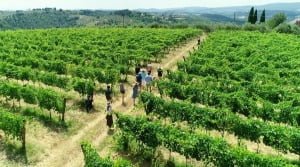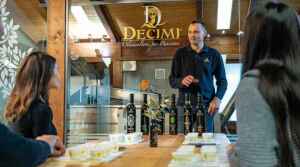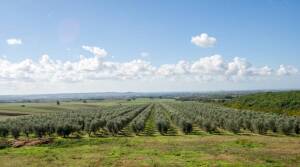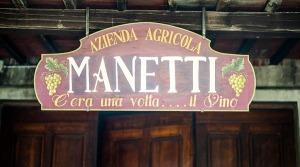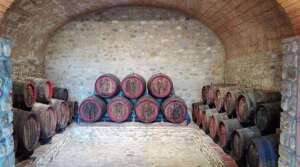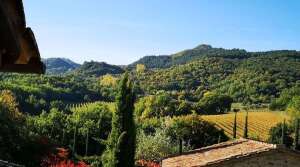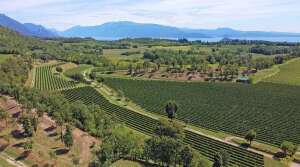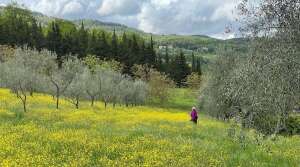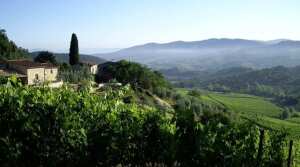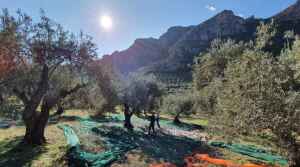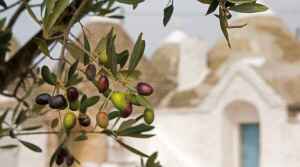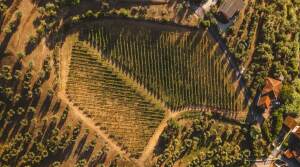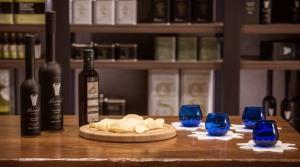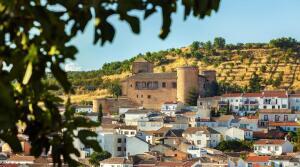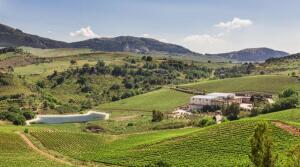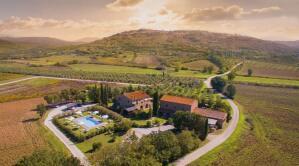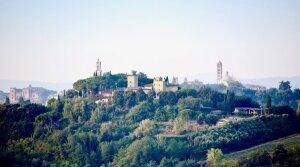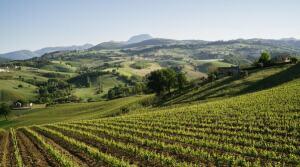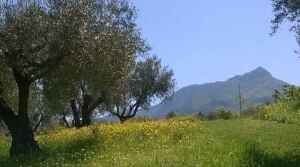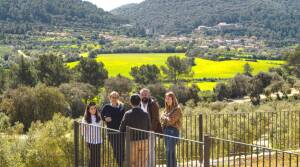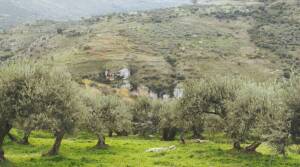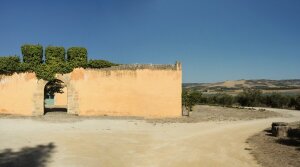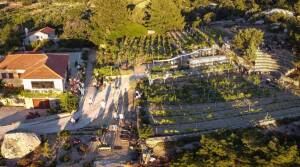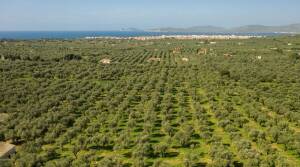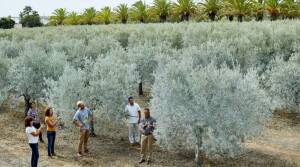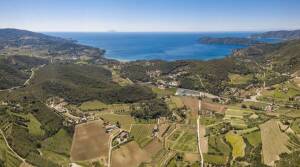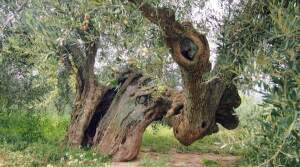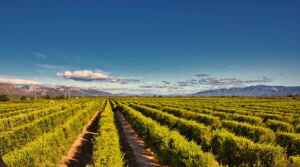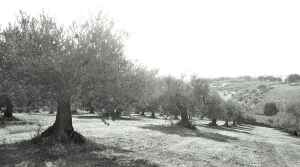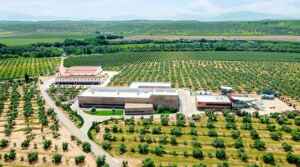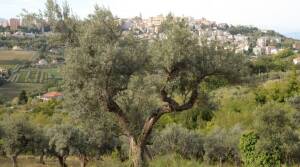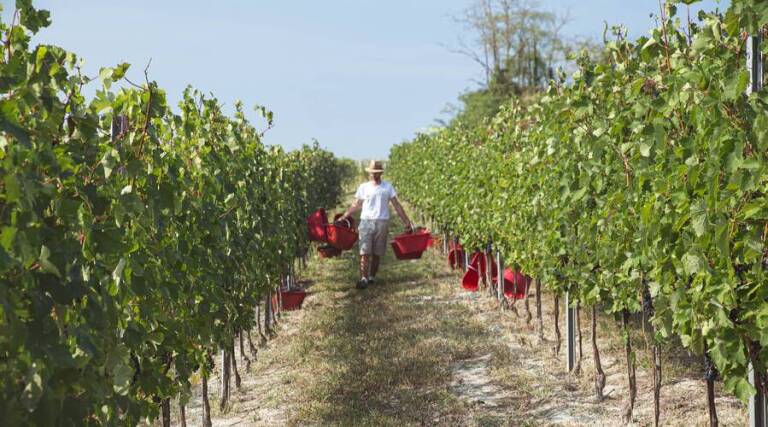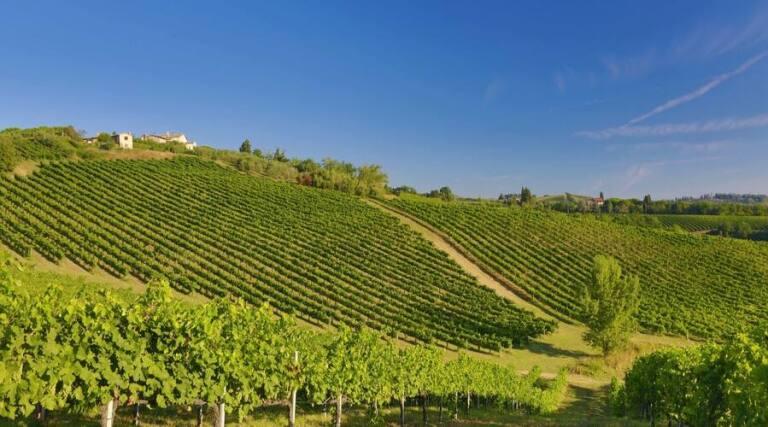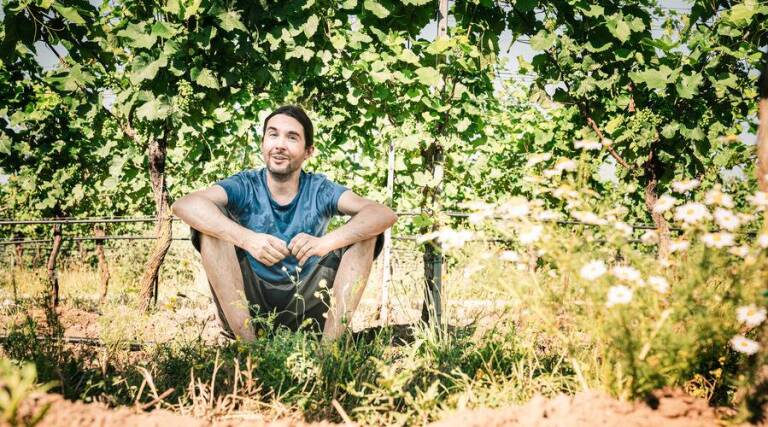The history of Gurrieri is born from a family passion, in the scenery of Sicilian viticulture. Giovanni and Angela, born and raised with the agricultural...
Read MoreAll the facts you need to know
Olive Oil - History, Nutrition, Cooking
Exploring Olive Oil
Olive oil is the staple food of the Mediterranean cuisine. We all know it, we have all tasted it, some like it, and some don’t.
But, do we really know it?
As the good gourmets that we are, we have started to look into the subject and understand it through its numerous perspectives. We have searched for its history (Bronze Age), geography (originally from Persia, spread through the Mediterranean), who are the biggest producers (and the largest consumers), what are the types, what health and nutritional benefits it has, how to use it in the kitchen, and more.

A (Very) Short History of Olive Oil
Olive oil was used since Bronze Age (around 3000 years BC). It is supposed that it was used for religious ceremonials, medicine, soap making, cosmetics, and as oil for lamps. It started being used as food only around 500 years BC.
It’s supposed to have arrived to the Mediterranean basin from Persia through Mesopotamia, and was spread by the Phoenicians to Greece, Carthage, And Libya.

There are quite a few olive trees that are a several millennial old. There’s the al Badawi olive tree in Bethlehem, of which experts estimate that it may be somewhere between 4,000 and 5,000 years old.
The oldest European olive tree is in Greece and it’s consider to have somewhere around 3,000 years. It still produces olives.
Olive oil tasting experiences
Fattoria di Montemorli
The Farm of Montemorli, known and appreciated for the production of its class wines, is located in the municipality of Poggibonsi in one of the...
Read MorePaneolio di Peter Pan
Azienda Agricola Paneolio is located in Valpolicella, close to Verona. It is the olive grove of the Pan family, who have dedicated themselves to quality...
Read MoreFrantoio Decimi
There are many ways to communicate an emotion, and we in the Decimi family, have chosen to do so by becoming olive growers and oil...
Read MorelaRiservaBio Azienda Agricola
laRiservaBio italian organic farm is managed by the De Rossi family. The farm is situated in Tuscia, an area which has perfect climate and soil ...
Read MoreL’Altro Sapore – Organic EVO Oil & Restaurant
The Guastini farm was born in 2009 from the passion and desire of Eleonora and Edoardo (a passionate agronomist and olive grower) to create a...
Read MoreOlive Oil Cultivars
As one of the oldest varieties of plants domesticated and cultivated, there are hundreds of cultivars (varieties). Some of them are table olives (larger in size) and others (smaller in size) are specifically for making oil.
There are many olive cultivars, each with a particular flavor, texture, and shelf life that make them more or less suitable for different applications, such as direct human consumption on bread or in salads, indirect consumption in cooking, or industrial uses such as animal feed or engineering applications.
During the stages of maturity, olive fruit changes color from green to violet, and then black. Each olive cultivar has its own unique chemical and taste characteristics, and oils made from the same cultivar can differ depending on the cultivation, harvesting, and processing variations.
Olive oil made from a single variety is called a monovarietal, or monocultivar olive oil. Blends are crafted using oils from two or more cultivars.
Some of the best olive oils are monocultivar, while other, with a more complex taste, are made from a combination of various cultivars.
We have identified over 80 olive oil types. Some are very well known and specific to a geographical area: Frantoio, Leccino, Moraiolo (well known and extensively used in Italy), Arbequina and Piqual (specific to Spain), Koroneiki (Greece), or the Madural Transmontana and Macanila (from Portugal),
Olive oil tasting experiences
Cantina Leonardo Manetti
Azienda Agricola Leonardo Manetti is located in one of the most suggestive areas of Tuscany, Chianti hills, in Via Maestro da Greve 84 in Greve...
Read MoreMarzocco di Poppiano
Our company is located in the Chianti Colli Fiorentini area, on the Poppiano hill (300 m altitude), a splendid medieval settlement dominated by the castle....
Read MoreLe Pianore
Set in the heart of the Tuscan Maremma, surrounded by woodlands, vineyards, olive groves and mountain streams, with spectacular views and untouched landscapes, Le Pianore...
Read MoreCantine Scolari
A story of people and territory Antonio Goffi is the son of a small farmer and winemaker in Valtènesi. In the early 70 s the...
Read MoreA Few Statistics about Olive Oil
Largest Olive Oil Producers
World production in 2019/2020: 3,200,000L
Largest Olive Oil Consumers
Per capita consumption in L per year
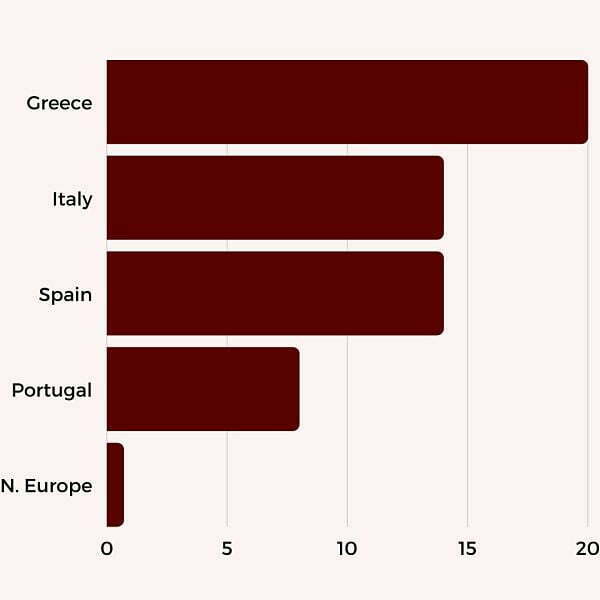
Spain is the largest producer of olive oil, manufacturing almost half of the world’s olive oil. Italy, Greece, Tunisia, Turkey, and Morocco are also large producers of olive oil.
The European Union is the biggest consumer of olive oil, with around 1.5 million tonnes of olive oil consumed within the EU every year. On an individual basis, Greeks are the biggest consumers of olive oil, using about 20 liters or 5.3 gallons per person annually, followed by Spaniards and Italians with about 13 liters or 3.4 gallons per person annually.
The United States is the largest volume importer of olive oil globally, accounting for about 35 to 40% of world imports annually.
Olive oil tasting experiences
La Gramigna – Azienda Agricola
La Gramigna is a small organic farm in Sieci on the hills east of Florence where Renata began to cultivate the land around her house...
Read MoreSocrates Olive Grove
The estate is located in the traditional olive grove of Delphi. The largest continuous olive grove in the Balkans. There you will see the centuries-old...
Read MoreQuinta do Zambujeiro
Quinta do Zambujeiro was founded in 1999 and has achieved an excellent reputation during the following years, to be internationally recognized as one of the...
Read MoreLe Fonti – Panzano
Le Fonti is a small organic family winery right below the village of Panzano. Chianti Classico is the main focus and the Sangiovese grape shows...
Read MoreHow Do They Call Olive Oil Where It's Produced?
- Olio d'oliva (Italy)
- Huile d'olive (France)
- Aceite de oliva (Spain)
- Azeite (Portugal)
- ελαιόλαδο (Greece) - it reads as elaiolado
The Production Process
Extra virgin olive oil is the result of cold pressing the olives in olive mills (frantoio in Italian, almazara in Spanish , lagar de azeite in Portuguese).
The oil is made in an oil mill and the production process goes through 5 stages:
- Harvesting
- Washing and pressing
- Kneading
- Extraction
- Separation
Olive harvesting is the most delicate of the olive oil producing phases. The right time for harvesting is decisive for the quality of the olive oil.
Also, the method of harvest is important. A manual harvest is preferred to a mechanical one – manual harvesting produces less damage to the tree and the fruit, thus ensuring a better quality for the oil.
Some producers push the search for quality to very high levels and harvest the olives at night to prevent the oxidation.
Olive oil tasting experiences
Mer des Oliviers de Delphes
The olive oil Mer des Olivier de Delphes, is produced from olives of the olive groves of Amfissa – Delphi. These groves exists for over...
Read MoreFrantoio D’Orazio
Frantoio D’Orazio rises in that corner of Puglia surrounded by centuries-old olive trees. From an old family history based on the most ancient traditions, an...
Read MoreTenuta Querciamatta
Querciamatta Estate was born in 2018. A place abandoned for more than 20 years, found and reinvented. The project includes wine, oil, events and widespread...
Read MoreAfter harvesting, the olives are washed with abundant water after which they are transferred to the oil press.
The oil press system still resembles the pressing millstones that were being used during the Helenic age.
The more modern pressing system are using a hammer mechanism that crushes the olive against metal.
After the olives were pressed into a paste, the next phase, the kneading, consists in slowly and continuously mixing the dough.
The purpose of this phase is to allow the paste to reach a certain temperature at which the necessary enzymes will be activated, thus conferring the resulting oil its nutritional and health qualities.
During this phase the water is separated from the oil through centrifugation.
The resulting first press extra virgin olive oil is bottled to protect it from oxidation.
Olive oil tasting experiences
Savouidakis
Embark on a wonderful journey and get to know the “liquid gold” of Crete that will elevate your senses. If you are a lover of...
Read MoreVilla a Sesta
Azienda Agricola Tattoni Villa a Sesta Spa is located in the enchanting scenery of the Sienese hills, in the village of Villa a Sesta, of...
Read MoreCastillo de Canena
Castillo de Canena is a family whose tradition in making extra virgin olive oils dates back to 1780. The olive oil takes its name from...
Read MoreBaglio di Pianetto
Baglio di Pianetto represents a dream come true, achieved when Conte Paolo Marzotto, in 1997, founded a winery in a corner of earth that he...
Read MoreDuring this phase the solid part (the pomace) is separated from the liquid part which at this stage is a mix of oil and water.
This phase can be performed through pressure, centrifugation or percolation.
After the first press, around 5-8% olive oil remains in the solid paste. This oil, known as refined pomace oil, is further extracted using chemical and solvents. It is flavourless and it still retains some of the benefits of the olive oil.
During this phase the water is separated from the oil through centrifugation.
The resulting first press extra virgin olive oil is bottled to protect it from oxidation.
Olive oil tasting experiences
Tenuta il Cicalino
The Vecchioni family originally came from Pisa and was one of the branches of the Counts of Piombino family. Around the beginning of the 19th...
Read MoreLa Torre alle Tolfe
Situated 5 km from the center of Siena, la Torre alle Tolfe is a 100 hectares farm that traces its name back to the VIII...
Read MoreVignedileo
One century of history. This is the history of two Families of wine-growers native of Staffolo whose shared passion for wine brought them together. The...
Read MoreFattoria del Teso
Fattoria del Teso is a family owned winery situated in the Municipality of Montecarlo, a picturesque medieval village roughly halfway between Lucca and Florence. Given...
Read MoreThe Types of Olive Oils
There three types of olive oil:
- Extra virgin olive oil
- Virgin olive oil
- Regular olive oil
It is important to understand the difference between each olive oil type as the health benefits and ways of cooking differ.
Extra virgin olive oil
The extra virgin olive oil is tre result of the first cold press of olives. It is considered to be the best olive oil for cooking and also the best olive oil in terms of quality and health benefits.
Due to its production process (the extra virgin olive oil is cold pressed and it’s never in contact with chemicals) the damaging of the important oligoelements and polyphenol antioxidants is prevented.
The extra virgin olive oil colour ranges from green to gold. Its aromas ranges from fresh green to fruity and it has a peppery after taste due to its early harvest.
Eliris Olive Oil
In an area of astonishing natural beauty, nestled in the foothills of the Menikio mountains in northern Greece, there thrives an olive grove of noble...
Read MoreAmor é Cego Olive Oil
It is on Monte da Oliveira Velha, between Évora and Estremoz, that our Amor é Cego is born. In the family for three generations, this...
Read MoreTreurer – Olive Grove & Grand House
Treurer is a finca located in Algaida, Mallorca, and belongs to the Miralles family. It has an extension of 20 ha. of which 12 ha....
Read MoreAgrestis Soc. Coop. Agricola
We are a company established in 2003 in Buccheri, Syracuse, at 820 meters above sea level. Our Coop. extends over 45 hectares of completely pristine...
Read MoreVirgin Olive Oil
The difference between the extra virgin olive oil and its virgin variety is that, while the extra virgin olive oil has to be pure in taste, the virgin olive oil is allowed to have minor defects (unnoticeable for the untrained palate).
This type of olive oil is actually quite hard to find.
Regular olive oil
The regular or refined olive oil is a mix of extra virgin olive oil (15-25%) and refined olive oil obtained through methods where chemicals and heating are involved during the extraction process.
Due to its production process it has fewer health enhancing capacities while still being a rather healthy choice for cooking.
Olive oil tasting experiences
Agricola Maraviglia
Maraviglia sits on a bucolic hill in Monte San Savino, Tuscany. The story goes that Maraviglia was named by ancient pilgrims traveling from France to...
Read MorePoggio al Chiuso
The Corti family has been involved in the production and trade of wine for four generations. In 1898 Narciso began to buy the wines produced...
Read MoreNutrition Facts and Health Benefits
1 tablespoon of olive oil contains 13.5g of fat (saturated fat: 1.9g, polyunsaturated fat: 1.4g, monounsaturated fat: 9.8g), 0g of carbohydrates, and 0g of proteins.
1 tablespoon of olive oil has 119 calories (you would need to run 11 minutes to burn that amount of calories).
Extra virgin olive oil (evoo) has numerous health benefits. It’s not only good for your body but it’s also good for your mind, as a regular consumption will help prevent a cognitive decline. You can see below a non exhaustive list:
- Rich in vitamin E - increased immunity
- Rich in vitamin K - prevents blood clotting
- Helps increase good cholesterol
- Helps decrease bad cholesterol
- Has anti-inflamatory effects
- Reduces the risk of heart disease
- Protects from cognitive decline
- Protects from osteoporosis
- Improves the balance of bacteria in the gut
All these health benefits pertain to extra virgin olive oil. You can use it while preparing your food but you can also drink the content of a tablespoon of extra virgin olive oil every morning before your breakfast.
Unlike the evoo, the regular (refined) olive oil has fewer health benefits due to containing only 15-25% extra virgin olive oil. Nevertheless, it’s still a healthy choice for cooking.
Olive oil tasting experiences
Planeta Ulmo Winery
Vineyards, olive groves and nature in its surprising beauty embrace the ancient historical barn in the Ulmo estate. A few metres away from the Lake...
Read MoreAfianes Wines
We are a family, boutique estate. The passion for wine was the origin of our project with the aim of giving IKARIAs wine the place...
Read MoreAccademia Olearia
The Fois Farm was founded in Alghero, in the north-west of Sardinia, in the mid-1800s, cultivating its olive groves in the countryside of the Alghero...
Read MoreMonterosa Premium Olive Oil
At Monterosa we produce high quality olive oil from the town of Moncarapacho, in the East of Algarve. Our extra virgin olive oil comes from...
Read MoreCooking with Olive Oil
Even if some people still think that it’s dangerous for your health to cook with olive oil, contrary to popular belief, olive oil has a quite high burning point – somewhere between 170 and 210°C (350-410°F). This mean you can still fry with olive oil (but you should avoid deep frying).
Depending on the type of olive oil, you can use olive oil for finishing a dish, dipping, vinaigrettes for salads, baking, to sauté, roast, grill, sear, and fry.
Another interesting use of olive oil in the kitchen is in infused oils where you add an additional flavour to the extra virgin olive oil (basil, lemon, rosemary, etc.)
Extra virgin olive oil
Use EVOO to add flavour to a dish, as a finishing touch, for dipping, or as a vinaigrette fro salads.
You can use it to sauté, bake, and light fry.
Virgin olive oil
Due to its minor defects in taste it is better to use it for marinades, sautéing, roasting, light frying, baking.
Regular olive oil
Because it has a higher smoke point than EVOO – somewhere arounf 240°C (470°F) and mild flavour, chefs use it as a general purpose oil and prefer it for sautéing, roasting, light frying, baking rather than using it where the
Olive oil tasting experiences
Herdade dos Alfanges
Herdade dos Alfanges is a family-owned organic farm located in the Alentejo region of Portugal. The farm is operated by the Berger family, who have...
Read MoreLa Sabatinaccia
“La Sabatinaccia” is a bet on the future. Our farming activity is based on a few fundamental principles: ethics, empathy with humans and animals, high...
Read More9 Oliveres
9 Oliveres is a family-owned company dedicated to producing high-quality extra virgin olive oils, committed to sustainability and the recovery of abandoned fields. A unique...
Read MoreRústicas Faiges
With the experience accumulated by three generations of the Faiges family dedicated to the production, packaging, marketing and export of olive oil, Rústicas Faiges represents...
Read MoreOlive Oil - Key Take-aways
In conclusion, olive oil is one of the healthiest oils available to us. From replacing saturated and trans fats to reducing inflammation in our bodies, it has so many health benefits.
We also learned that not all olive oils are created equal, there are different grades of olive oil that vary in processing, purity, and taste. Knowing the difference between extra-virgin, virgin, and refined olive oil can help you choose the best oil for your needs.
Always opt for high-quality extra-virgin olive oil, which is made solely by mechanical means, without the use of chemicals or heat. This ensures that the oil retains all of its health benefits and flavor profile.
Finally, remember to store your olive oil properly, away from light, heat, and air, to preserve its freshness and quality.
Frantoio Tini
We offer you an experiential journey in our family oil mill, with more than 100 years of history. The tour is structured in two parts:...
Read MoreOleoturismo de Jaén
The authentic essence of Aires de Jaen is to gather in the same environment all the stages of olive oil production, from the sea of...
Read MoreIacovella Davide Azienda Agricola
Iacovella farm: a 150-year history Among secular olive trees and the desire to produce only excellent oils. That of the Iacovella Davide farm is a...
Read More
